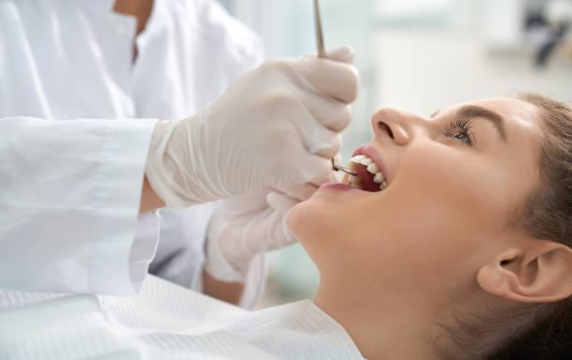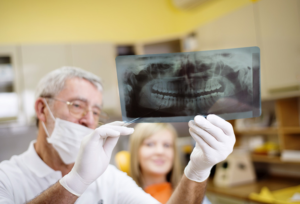Yes, practicing good oral hygiene at home goes a long way, but you still have much to benefit from getting professional help. An effective routine should include visits to the dentist for dental cleanings. Dental cleaning is a form of preventive dentistry that involves the removal of plaque and tartar from the teeth by a dental hygienist to prevent cavities and infections. They reach areas of your mouth that you can’t and can identify signs of decay or gum diseases early.
What Is the Dental Cleaning Process Like?
Mouth Examination
The dental hygienist examines your mouth by checking for cavities, infections, and other oral problems and calls the dentist’s attention if they notice any. They also inquire about your general health to ensure the process is entirely safe for you.
Scaling
The scaling process is the next step after the examination. It involves scraping off plaque and tartar from the teeth’ surface and cleaning between them and your gum margin using tiny metal instruments. Many find this procedure uncomfortable; to reduce the time the hygienist will spend doing this, you should ensure you brush and floss rightly and regularly.
Flossing
Expert flossing might benefit you more if you don’t floss at home, but you should. If flossing is a part of your dental routine already, you may see it as unnecessary, but the hygienist still has to do it to remove leftover plaque from the scraping procedure.
Scrubbing
This step involves using abrasive toothpaste and an electric toothbrush to clean deeply and remove surface stains, giving your teeth a shiny look. The scrubbing process may be harsh on your teeth, but doing it every six months is okay. Doing it more regularly can weaken your enamel.
Fluoride Rinsing
Your dental hygienist may provide a fluoride mouthwash to rinse your mouth or apply the gel directly to your teeth to remineralize them and prevent cavities.
Fluoride treatment is the final step but based on the peculiarity of your case or things the professional may have noticed during the process, other procedures like an x-ray may follow. Also, your dental hygienist may educate you on how to perform adequate oral hygiene.
Are Routine Cleanings Necessary?
Yes, routine cleanings are necessary. Even if you practice good oral hygiene at home by brushing, flossing, and eating healthy foods, it may not be enough to prevent tooth decay and gum infections. You may still be at risk of oral problems because you need a professional’s help to remove hardened plaque, known as tartar. If plaque isn’t removed, it can cause periodontitis and tooth loss.
Benefits of Dental Cleanings
Brighter Smile
Because of habits such as excessive coffee or wine drinking and smoking, you may have stains on your teeth, especially if there’s tartar. Fortunately, a dental cleaning procedure also includes the removal of surface stains on the teeth. So, a given after a dental cleaning is a whiter and brighter smile.
Reduces Risk of Foul Breath
Cleanings are essential because they make your teeth healthier. Routine cleanings are important because they are effective for removing plaque and tartar buildup in areas of the teeth that are not easily reachable. While practicing good oral care will prevent foul breath, it may not be as effective in the long run because of accumulated plaque in certain areas of the teeth.
Prevents Cavities
Plaque growth causes cavities that destroy the tooth, from its enamel to the innermost part. When this starts to happen, you begin to notice holes and black and white spots on the affected tooth. The primary purpose of routine cleanings is to remove this cavity-inducing bacteria.
Preserves Gum Health
The acids from plaque can spread to the gum, causing infections and disease. Gum disease begins as gingivitis, a mild infection with symptoms including tender, receding, and inflamed gums. If you still don’t see the dentist to rectify the damages of the infection, it will progress to a severe gum disease known as periodontitis which could lead to tooth loss.
Saves Time and Money
When you go in for regular dental cleanings, the hygienist can detect and possibly avert oral problems at the early stages. However, if you allow plaque to build up, you may end up paying for it with your time and money. You’ll have to undergo more stringent and costlier procedures such as fillings or a root canal.
Improves General Health
Your general health reflects how well you take care of your oral health. When you neglect your oral health, it could progress to a stage where the infection spreads to your jaw and neck and triggers cardiovascular disease or diabetes.
Conclusion
Many factors, habits, and activities go into maintaining healthy teeth. You must learn to visit the dentist regularly for the sake of your teeth and gum health.





Be First to Comment